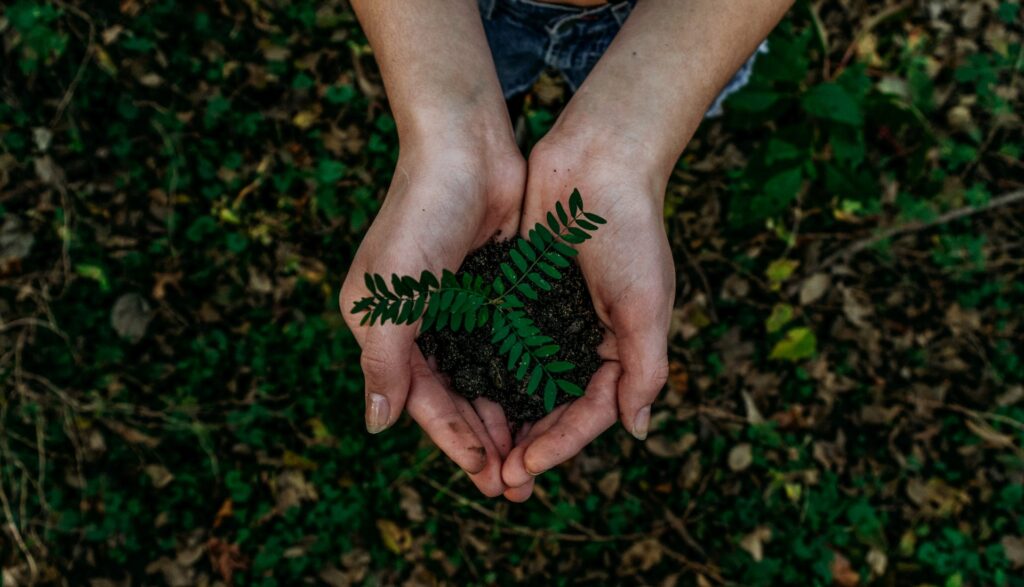As we all know that climate change is one of the biggest challenges we’re facing today and several human activities have clearly meant that we’re standing on the brink of an environmental disaster.
However, there are things that can be done to minimize the damage and make a huge positive impact on our Earth by reducing the carbon footprint and making some lifestyle changes.
Let’s take a look at what this means and what steps can be taken:
WHAT IS CARBON FOOTPRINT
It is a measure of the total amount of greenhouse gas emissions released into the atmosphere as a result of an individual’s, organization’s, or nation’s actions. It includes carbon dioxide (CO2) — a gas that is most commonly emitted by humans — and others, along with methane, nitrous oxide, and fluorinated gases, causing global warming.
Generally, the maximum amount of carbon footprint is generated from various modes of transportation and then comes from clothing selection, food choices, electricity consumption, household, shopping habits, and general waste.
So, that’s why we need your help!
HERE ARE SOME 10 COMMON WAYS shared by TheCotoconGroup – local law 97 service provider TO REDUCE YOUR CARBON FOOTPRINT AND SAVE MONEY
1. MODES OF TRANSPORT: Transportation releases a devastating amount of CO2 into the atmosphere. So, drive less in motor vehicles and instead walk, or cycle if it’s just 5 minutes by car, take public transportation, or carpool. Also, a big NO to aggressive driving as it can lead to tragedy for obvious reasons. Switch off the ignition when at standstill or at the traffic light. By doing all these, you will be saving your fuel money.
2. FOOD CHOICES: If you are wondering how can you reduce your carbon footprint with the food then know this, animal food products are much more energy-intensive and require more water, and resources. However, consuming fruits, plant-based food, grains, and beans is not only healthier but also better for the planet. Also, get fruits and vegetables from your local market and support your local farmers.
3. FERTILIZE YOUR GARDEN: Composting is good for the gardens and for the environment. Since, food waste is a major issue in hotels, restaurants, and weddings/parties, so you can compost using waste food to feed your plants as it is considered a natural fertilizer. Grow more plants and herbs to take good care of the planet as they are capable of absorbing carbon dioxide from the atmosphere and reducing the effects of global warming.
4. SAY NO TO PLASTIC: Single-use plastics may be convenient, but they’re fairly dreadful for the environment. Stop buying plastic water bottles, disposable coffee cups, and cutlery. This way you’ll save money and the environment by not polluting the waterways and oceans.
5. RECYCLE, REUSE: Make an effort to recycle your waste if you can’t reuse them by following your country’s guidelines. Also, do not buy non-recyclable products and try to use eco-friendly products in the future to save money.
6. CONSIDER ENERGY-EFFICIENT APPLIANCES: Energy-efficient devices designed to consume less energy are generally more environmentally friendly and save your money over time. Also, make sure to unplug all the devices when you’re not using them and turn off the lights when natural light is sufficient. It’s that simple to save energy and money and also, a frequent energy audit of your home is always recommended.
7. SHOPPING: Extraordinary purchasing is never good because the more things you will buy, the more things you may throw away. Think carefully about your purchases whether they are truly required or not. Also, switch to eco-friendly products which require less energy to function and operate.
8. CLOTHING: According to the United Nations, the clothing sector generates 10% of all global carbon emissions, resulting in enormous waste and pollution. Choose sustainable and environmentally friendly apparel to keep the environment clean. Try to avoid fast-fashion clothing and instead, buy quality clothing that will last.
9. SAVE WATER: There are many people who are still facing water shortages. Note that, it takes energy and resources to process and deliver water to your homes. So, the least you can do is not waste water unnecessarily by turning on the taps when brushing your teeth, having long showers, or washing your car too many times.
10. AWARENESS: Your community may not know much about these things and you can change that by raising awareness to educate people about the importance of protecting the environment and helping the ones around you to reduce their carbon footprints. This will be hugely helpful.
Above mentioned steps will take you closer to nature as it is essential for us to bring about change in our habits and give something back to the planet because we owe it to our mother nature.



